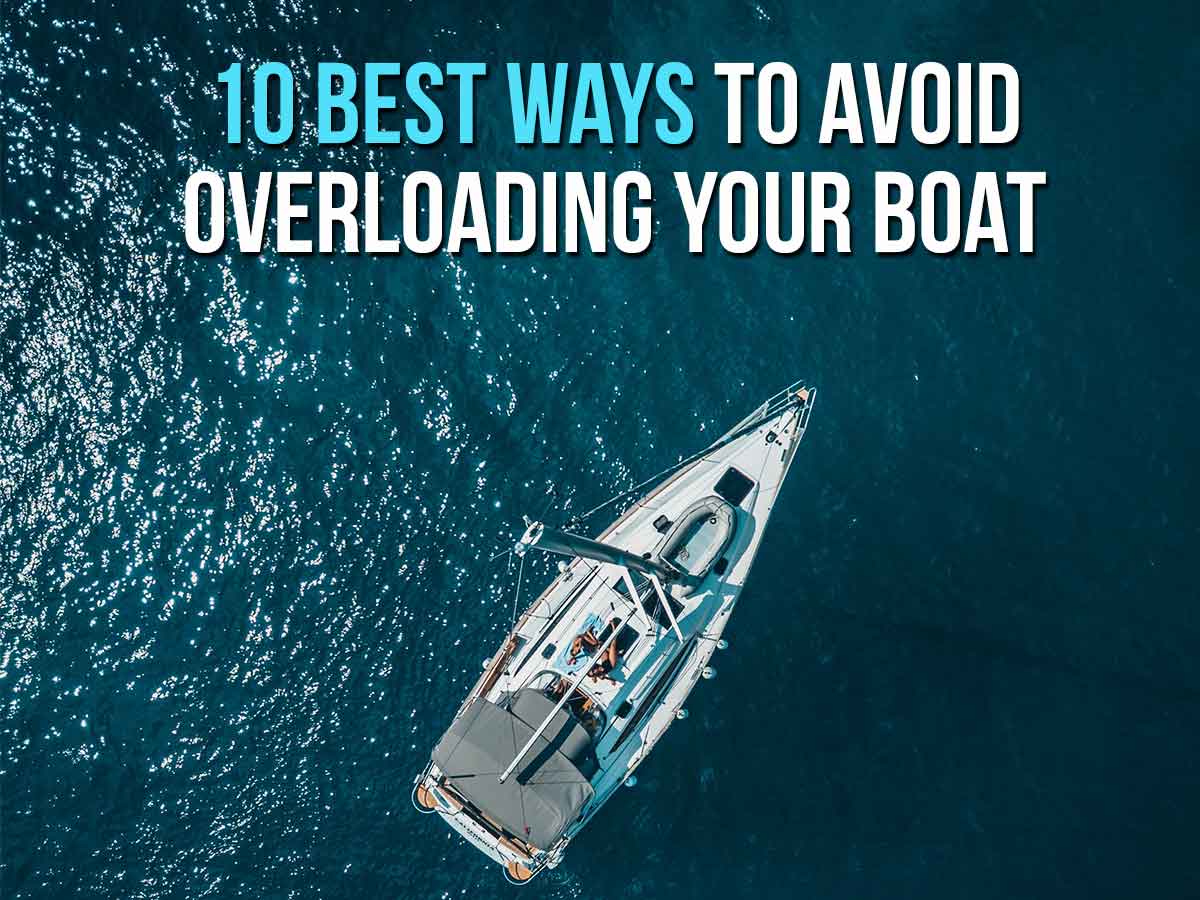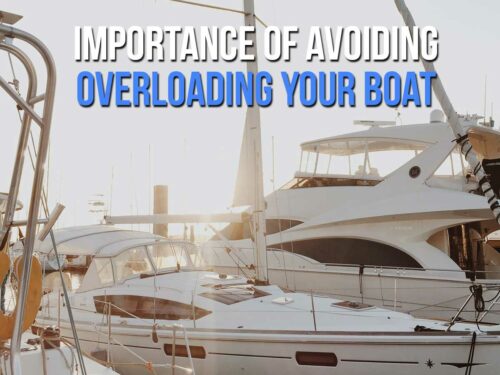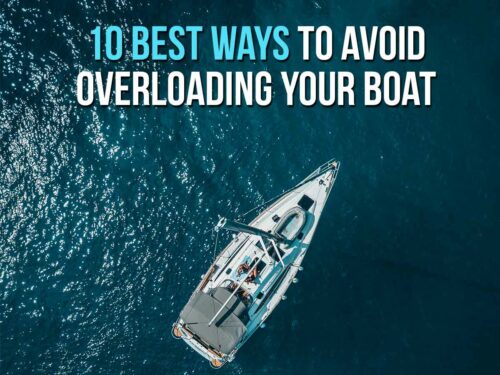When taking a boat out into the water, it is important to make sure that weight is distributed correctly throughout the boat. A heavily overloaded boat can lead to several different problems, such as damaged equipment and human injury. If you want to avoid these problems or if you want to increase your safety while boating, you should take some extra time and care to load your boat properly.
Here are some tips on how to avoid overloading a standard boat.

1. Know Your Boat's Weight Capacity
One of the most important things is to know what weight capacity your boat can handle and stay below that number, if possible. If you do not have this information, it should be located in the owner’s manual or on a label on the inside of one of the sides. You can also contact the manufacturer and ask them follow-up questions about their weight recommendations.
2. Place Heavier Items Near The Center Of The Boat
If you are considering loading your boat with larger, heavier items, put them in the center of the boat where they won’t affect people’s ability to steer or maneuver the boat. This will also help to distribute the weight evenly and put less stress on all of your boat’s components. If you have other, smaller items that can be loaded towards the outside of the boat, you should do this, so they don’t become unbalanced.
3. Load Your Boat From The Right Side
When loading your boat, put heavier items as close to the right side as possible and lighter items as close to the left as possible. This will ensure that both sides of your boat have evenly distributed weight, make it easier for you to control your boat, and prevent any damage that could be caused by heavy objects shifting around while you are moving.
4. Use A Weight Distribution System
Weight distribution systems are specially designed to help distribute the weight of a boat more evenly while at the same time raising its gunwales. If your boat does not have a system like this, you should create your own with anchor chains and sandbags. This will make your boat more stable and will prevent damage from occurring due to uneven weight distribution.
5. Carry Only What You Need
Before you go out onto the water in your boat, carefully consider what you need to bring with you. For example, if it will be a hot day, which means you are more likely to get dehydrated faster than usual, do not bring along extra beer or soda. You should also avoid bringing anything that is too large and/or heavy for the boat. Even if you are close to your weight limit, leaving some items behind is better than forcing yourself to carry an extra hundred pounds of weight around.
6. Know Your Own Limits
Make sure to consider your physical limitations and carefully compare them to the load limits of the boat. If you know that you cannot swim, for example, you should not take out a boat with a weight capacity that is too high for your own abilities.
7. Bring Along Items To Protect The Boat
If you are boating in an area with a lot of sharp objects, bring along extra padding so that people can sit on it while they are waiting for help or if they happen to get into the water. If there is a chance of rain, you should also bring along some sort of cover.
8. Prepare For The Worst
If you are taking a long trip on the water with many passengers, it is always best to bring along more food and water than you think you will need in case there is bad weather or an emergency. This way, no matter what happens, everyone will be prepared and ready.
9. Be Aware Of The Weather
If you are boating in an area with bad weather, there is a good chance that you will need to know what the wind speed and direction are before venturing out onto the water. This helps you plan where it would be best to go while avoiding dangerous currents or waves. If your boat’s load capacity is too high for the conditions, you should wait until the weather is better.
Discover How to winterize a inboard boat.
10. Check Your Boat Before Getting In
If you are planning to go out on a boat and you don’t know how much it weighs, check the weight by lifting one end at a time and then putting it back down with little or no effort. If you cannot do this without straining yourself, you should not get in the boat.
Importance of Avoiding Overloading Your Boat

There are many risks associated with overloading your boat. If you do not distribute the weight evenly, it could cause damage to the boat’s components and will make it harder for you to control. It is also important to remember that every time someone gets into or out of a boat, they will change its balance and can easily cause it to capsize.
1. Damage To Components
Since boats are designed to be as light as possible, anything that makes them heavier than usual may cause damage to the structure and other components over time. It can seem normal at first if you overload your boat, but parts on the surface may start getting dents or cracks after several trips.
2. Harder To Control
If you overload your boat, it will be harder to control, and this increases the chances of an accident happening. You can easily flip a boat or capsize it if you overload it, especially if there is a fast current or large waves present where you are boating.
3. Increase In Likelihood Of Capsizing
Every time someone gets into or out of a boat, it changes its weight and balance. There is always a chance that you will not be able to compensate for this change, and the boat will capsize. If you overload your boat, it becomes much easier to do accidentally.
4. More Likely To Get Stuck
Even if you are able to avoid accidents by overloading your boat, there is the possibility that it could get stuck somewhere. If you take a slightly overloaded boat through shallow water or into marshy areas, it may get stuck and become impossible for you to move until someone helps pull it out.
Conclusion
As you can see, there are many risks associated with overloading your boat. Even if it is hard to avoid at first, you should always try not to overload it and distribute the weight as evenly as possible. If you are thinking about taking a large group of people out on the water, it is best to get multiple boats.

